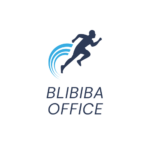Sports Nutrition Job
- Growing Demand: The sports nutrition field is experiencing a surge in demand as athletes prioritize dietary strategies to enhance performance and recovery.
- Diverse Roles: Career opportunities include positions such as Sports Nutritionist, Dietitian, Nutrition Consultant, and Exercise Physiologist, each focusing on optimizing athletes’ diets.

- Educational Credentials: A minimum of a bachelor’s degree in nutrition or dietetics is typically required, with advanced qualifications like RDN or CSSD enhancing career prospects.
- Key Responsibilities: Sports nutritionists develop personalized nutrition plans, monitor progress, and collaborate with athletes and coaches to ensure effective dietary practices.
- Current Trends: The industry is shifting towards personalized nutrition, technology integration for tracking dietary intake, and an emphasis on sustainable food practices.
- Collaboration Importance: Working closely with other health and fitness professionals is essential for providing comprehensive care that addresses athletes’ physical, nutritional, and psychological needs.
In the dynamic world of athletics, the importance of nutrition can’t be overstated. Sports nutritionists play a crucial role in optimizing athletes’ performance through tailored dietary plans. With a growing emphasis on health and wellness, the demand for professionals in this field is skyrocketing.
As athletes strive for peak performance, they increasingly turn to experts who understand the intricate relationship between food and physical activity. This burgeoning career offers opportunities to work with teams, individual athletes, and fitness enthusiasts alike, making it a rewarding path for those passionate about sports and nutrition. Whether it’s developing meal plans or advising on supplements, a career in sports nutrition combines science and sports in an exciting way.
Overview Of Sports Nutrition Jobs
Sports nutrition jobs encompass a wide range of roles focused on optimizing athletic performance through dietary strategies. Professionals in this field work closely with athletes, teams, and organizations to develop personalized nutrition plans that enhance endurance, recovery, and overall performance.
Common job titles include:
- Sports Nutritionist: Provides tailored dietary advice to athletes, considering their specific needs and goals.
- Dietitian: Works with athletes to create meal plans that align with their training regimes and health objectives.
- Nutrition Consultant: Advises sports teams or individual athletes, offering expertise in nutritional strategies for competition.
- Exercise Physiologist: Integrates exercise science and nutrition to develop comprehensive training and dietary plans.
Typical settings for these roles include fitness centers, universities, professional sports teams, and private practice. Some may also find opportunities in research or health policy roles that emphasize the importance of nutrition in physical performance.
Educational requirements vary, but many positions require at least a bachelor’s degree in nutrition, dietetics, or a related field. Advanced degrees and certifications, such as Registered Dietitian Nutritionist (RDN), can enhance career prospects and credibility.
The demand for sports nutrition professionals has surged as more athletes recognize the pivotal role nutrition plays in performance. These careers offer the chance to make impactful contributions to the health and success of athletes across various sports disciplines.
Key Responsibilities Of A Sports Nutritionist
Sports nutritionists play a critical role in developing dietary strategies tailored to enhance athletes’ performance. Their responsibilities include creating personalized nutrition plans and collaborating closely with athletes to ensure optimal health and success.
Developing Nutrition Plans
Developing effective nutrition plans involves assessing an athlete’s dietary needs based on specific goals, such as muscle gain or endurance enhancement. Implementing analysis of body composition and activity levels helps customize meal plans that provide necessary macronutrients. Guiding athletes on calorie intake and timing around training sessions boosts performance and recovery. Monitoring progress through regular assessments and adjusting nutrition plans based on an athlete’s response ensures continual improvement. Providing education on food choices further empowers athletes to maintain balanced diets.
Collaborating With Athletes
Collaborating with athletes requires establishing trust and open communication. Building rapport helps sports nutritionists understand individual preferences, lifestyle habits, and specific challenges athletes face. Coordinating with coaches and other health professionals ensures a holistic approach to an athlete’s performance strategy. Offering motivation and accountability supports athletes in adhering to their nutrition plans. Organizing workshops or seminars on nutrition topics fosters deeper understanding and engagement, allowing athletes to make informed dietary choices.
Required Skills And Qualifications
Successful sports nutrition professionals possess a combination of educational credentials and essential skills that equip them to enhance athletes’ performance through effective dietary strategies.
Educational Background
A bachelor’s degree in nutrition, dietetics, or a related field forms the foundation of a career in sports nutrition. Many professionals pursue advanced degrees such as a Master’s in Sports Nutrition or Exercise Science to gain specialized knowledge. Certifications significantly enhance job prospects and credibility. Notable certifications include the Registered Dietitian Nutritionist (RDN), Certified Sports Nutritionist (CNS), and Board Certified Specialist in Sports Dietetics (CSSD). Continuous education through workshops and seminars keeps professionals updated on the latest research and trends in sports nutrition.
- Analytical Skills: Professionals assess athletes’ individual dietary needs, evaluating their health status and performance goals.
- Communication Skills: Clear communication facilitates collaboration with athletes, coaches, and medical professionals, ensuring effective guidance and support.
- Interpersonal Skills: Building trust with athletes fosters a better understanding of their preferences and barriers, leading to more successful nutrition strategies.
- Problem-Solving Skills: Each athlete may present unique dietary challenges; developing tailored solutions enhances performance and adherence.
- Nutritional Knowledge: Profound understanding of macronutrients, micronutrients, supplements, and how they affect athletic performance is essential.
- Adaptability: Professionals need to adjust dietary plans based on athletes’ changing performance needs and preferences.
- Organizational Skills: Managing multiple athletes’ plans and documenting progress demands high levels of organization and attention to detail.
Career Opportunities In Sports Nutrition
The field of sports nutrition offers diverse career opportunities for professionals dedicated to improving athletic performance through dietary strategies. Various work environments and career paths cater to specific interests and expertise within sports nutrition.
Different Work Environments
Professionals in sports nutrition can find employment in a variety of settings, each presenting unique challenges and rewards. Common work environments include:
- Fitness Centers: Sports nutritionists in fitness centers provide dietary guidance to clients seeking performance improvements, weight management, or general health benefits.
- Professional Sports Teams: In professional sports organizations, nutritionists collaborate directly with athletes, tailoring meal plans that support training and competition schedules.
- Universities and Colleges: Institutions often employ sports nutritionists to work with student-athletes, focusing on fueling performance and promoting healthy eating habits.
- Private Practice: Independent consultants or nutritionists operate private practices, offering personalized nutrition advice and meal planning services to athletes of all levels.
- Corporate Wellness Programs: Health and wellness initiatives in corporations frequently include sports nutrition programs to enhance employee fitness and productivity.
Potential Career Paths
The sports nutrition sector provides various career paths, each aligned with different levels of expertise and interests. Notable career opportunities include:
- Sports Nutritionist: These professionals specialize in creating nutrition plans for athletes to optimize performance based on individual goals and needs.
- Registered Dietitian Nutritionist (RDN): RDNs focus on clinical nutrition, adapting conventional dietary principles to enhance athletes’ health alongside their performance.
- Nutrition Consultant: Consultants offer flexible dietary advice across diverse populations, including athletes, recreational enthusiasts, and general clients.
- Exercise Physiologist: These specialists assess athletes’ physical fitness, providing insights that influence dietary strategies for enhanced performance and recovery.
- Sports Dietetics Specialist (CSSD): A certified specialist focuses on performance nutrition specific to various sports, offering advanced insights into dietary practices.
The sports nutrition profession, with its varied environments and pathways, presents opportunities for individuals passionate about aiding athletes through nutrition.
Industry Trends And Future Outlook
The sports nutrition sector experiences continuous evolution driven by increasing awareness of health and performance optimization. The trend toward personalized nutrition is significant, as athletes seek tailored dietary strategies that align with their specific needs and goals. Increased interest in plant-based diets among athletes influences product development and dietary recommendations, emphasizing the importance of nutrient density.
Technological advancements are reshaping the sports nutrition landscape. Mobile applications and wearable technology enable athletes to track their nutrition and performance metrics in real time. This data-driven approach facilitates customized meal planning and nutrition monitoring, enhancing athletes’ performance and recovery.
As the demand for sports nutrition professionals grows, new career opportunities arise. Organizations increasingly recognize the benefits of hiring sports nutritionists for team performance and injury prevention. These professionals play a crucial role in optimizing training programs through dietary strategies that support athlete development.
Collaboration between sports nutritionists and other health professionals within multidisciplinary teams becomes essential. This holistic approach ensures comprehensive athlete care, addressing both nutritional and psychological needs. Sports nutritionists gain a competitive edge by developing strong partnerships with coaches, strength trainers, and healthcare providers.
The future of sports nutrition also focuses on sustainability. Athletes increasingly prioritize environmentally friendly practices, driving demand for sustainable food sources and packaging. Innovative products that meet these criteria may dominate the market, reflecting athletes’ commitment to health and the environment.
Regulatory developments impact the sports nutrition field. Stricter guidelines regarding supplements and dietary products influence job responsibilities and practices among sports nutritionists. Keeping abreast of these changes is vital for maintaining compliance and ensuring optimal athlete support.
Professionals in this field can expect robust growth, stemming from the increasing integration of nutrition in athletic training programs across all levels of competition. As the understanding of the importance of nutrition in sports performance deepens, the outlook for sports nutrition careers remains promising.
Success and Well-being
The field of sports nutrition offers a dynamic and rewarding career for those passionate about enhancing athletic performance through dietary strategies. As the demand for knowledgeable professionals continues to grow, opportunities abound in various settings from professional teams to private practice.
With a focus on personalized nutrition and collaboration with athletes and health professionals, sports nutritionists play a crucial role in optimizing performance and recovery. The future is bright for those entering this field, with advancements in technology and a shift toward sustainability shaping the landscape.
For anyone considering a career in sports nutrition, the combination of science and sports provides a fulfilling path that contributes significantly to athletes’ success and well-being.



